Eye Health
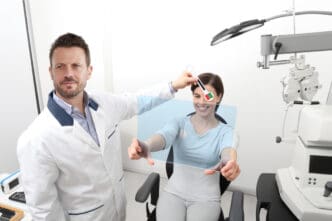
Dominant Eye Test: How to Determine Your Dominant and Non-Dominant Eye
A dominant eye test produces results that explain which of a person’s two eyes is more dominant than the other. The exams do not determine which eye sees more clearly, only which eye is the one used primarily for vision. What Is a Dominant Eye Test? Dominant eye tests tell which eye is the stronger […]
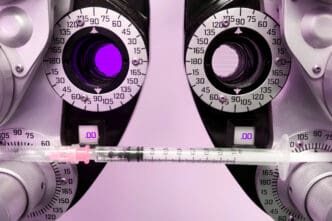
Avastin for Eye Disease
Avastin, or bevacizumab, is a prescription drug that treats internal eye bleeding by limiting the development of abnormal blood vessels. It is approved to treat several eye conditions, including retinal vein occlusion, macular edema, age-related macular degeneration and diabetic retinopathy. Avastin does not restore lost sight but does slow down the rate of vision loss. […]
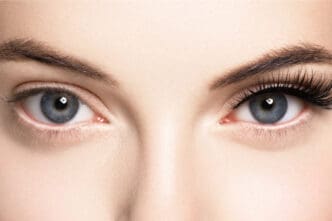
Are Eyelash Extensions Safe? Risks & Benefits
Eyelash extensions are safe when clean and properly applied. Only have eyelash extensions applied by an experienced professional. If eyelash extensions are applied incorrectly, it can lead to injury to the eye, infection, and other issues. What Are Eyelash Extensions? Eyelash extensions are different than standard fake lashes which are applied with each use. Extensions […]

Lutein and Zeaxanthin for Vision: Foods and Supplements
Lutein and zeaxanthin are natural xanthophyll carotenoids, which protect against excess inflammation and reduce the risk of age-related vision issues. Lutein and zeaxanthin are potent antioxidants, and they protect from the damage that free radicals cause in your body. A daily intake between 2 mg and 10 mg seems to offer a range of notable […]
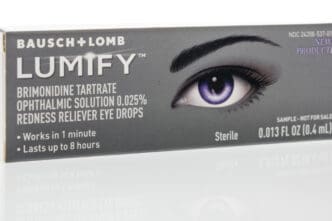
Lumify Eye Drops: How They Work & Who is a Candidate
Lumify eye drops are FDA approved to treat eye redness that result from minor irritations. They can be used in combination with other eyedrops, even those that are medicated, provided you wait at least five minutes between applications. Lumify’s formula is different than that of most anti-redness drops. Its active ingredient is brimonidine tartrate. The […]
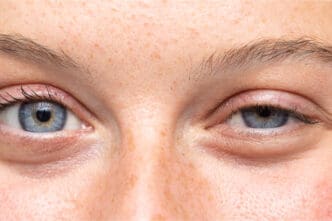
Painful Bump on Eyelid: Causes & Treatment
Painful bumps on the eyelid usually stem from blockage of an eyelid gland or tear duct. The resulting buildup of staphylococcus bacteria is why styes or chalazia develop. Effective treatments include warm compresses and an ability to not touch or rub the bumps. Sometimes doctors prescribe antibiotics to clear up the infection. Most cases resolve […]
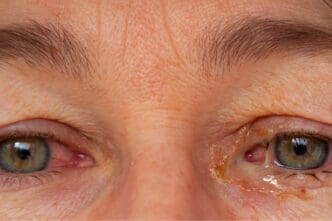
Eye Discharge: Causes, Treatment, and More
Eye discharge is excess fluid that builds up in the eyes and comes out as watery or viscus fluid or as a crusty buildup. Causes of discharge can range from an allergic reaction to an infection to a foreign body that has gotten under the eyelid. Most eye discharge is harmless and does not need […]

Why Do We Blink Our Eyes?
Everybody does it without even thinking about it. And it happens so fast that it has spawned a common expression of speed: “It happened in the blink of an eye.” Blinking is the semi-autonomic action of rapidly closing your eyelids. It is an essential eye function that spread tears across your eyes and eliminates irritants and […]
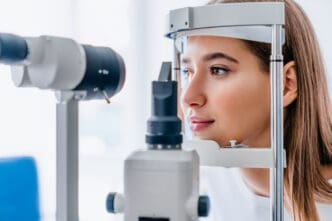
Diabetic Eye Exams
Diabetic eye examinations are necessary for anyone who has diabetes because of the strong connection between the disease and vision problems. Someone with diabetes should have at least one eye exam per year. Examples of eye diseases related to diabetes include: Cataracts Glaucoma Diabetic retinopathy Diabetic macular edema Routine eye exams and diabetic eye exams […]
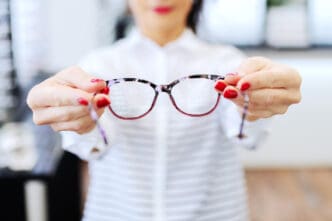
Opticians: Education, Services Provided, and When to See One
While opticians might have lesser qualifications and narrower scope of practice than other members of an eye care team, these technicians are the lifeline of vision care services. An optician is an ophthalmologic practitioner trained to design, fit and dispense lenses for correcting visual issues. Eye care specialists include ophthalmologists, optometrist(s) and opticians. Opticians who […]
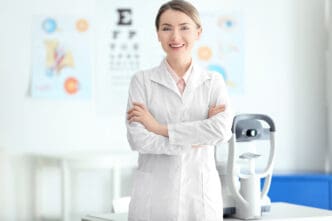
Optometrists: What They Do and When to See One
Optometrists are eye care professionals who diagnose and treat various vision problems. An optometrist can test for vision changes, prescribe corrective lenses and handle other eye-related treatments, but they cannot perform major eye surgeries. Unlike ophthalmologists, optometrists are not medical doctors, and their scope of practice is limited to managing certain eye abnormalities and conditions. […]
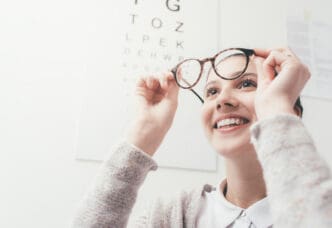
A Guide to Understanding Glasses (or Contact Lens) Prescriptions
If you have had an eye exam recently, your eye doctor may have given you a prescription for either glasses or contact lenses. The prescription describes in numerical terms how the lenses of your new eyewear must be made to allow you to see clearly when wearing them. Each field of an eye prescription covers […]